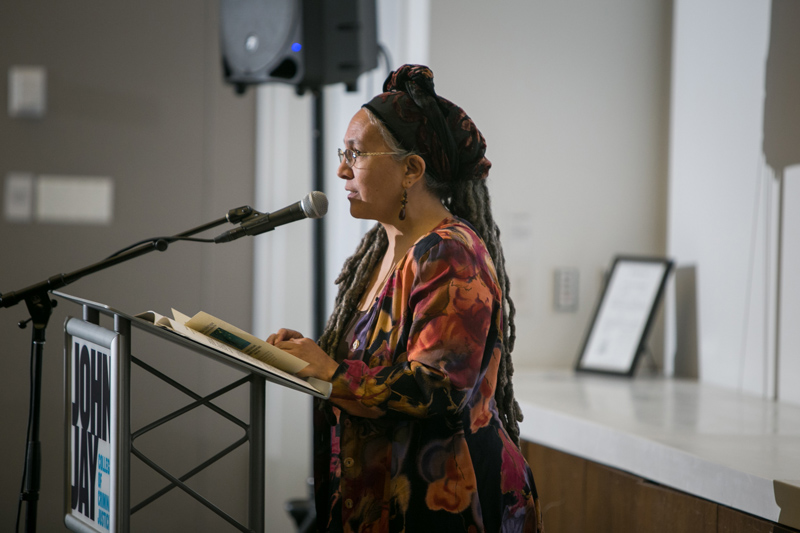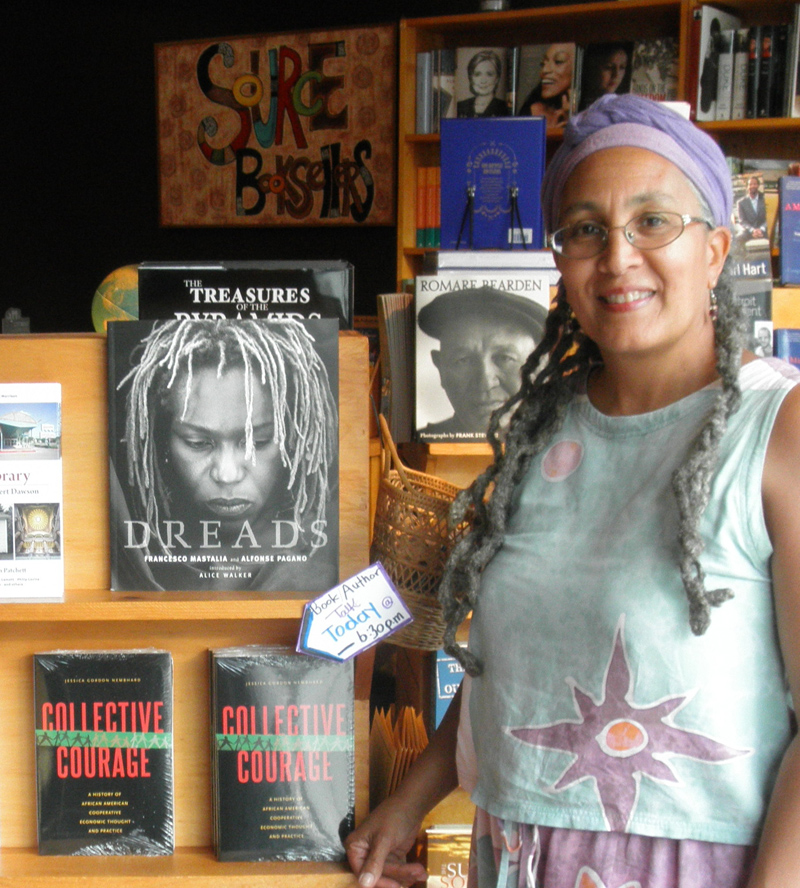Discussion On Cooperative Economics System
Jessica Gordon-Nembhard, a political economist from New York, will be on Island next Saturday [March 30] discussing the possible benefits and impacts of adopting a cooperative system of economics in Bermuda.
According to Dr Gordon-Nembhard, the Professor of Community Justice and Social Economic Development at City University of New York, Bermuda already has a variety of examples of cooperatives, credit unions and a tradition of mutual aid among people.
Still, the scholar and author explained, having more cooperation and developing more cooperative enterprises will help Bermudians control their own economic development, keep local resources and people in communities, create better jobs with profit-sharing, and more worker and community decision-making.
‘An Evening with Renown Dr Jessica Gordon-Nembhard’, hosted by the Bermuda Economic Development Corporation [BEDC], will take place at St. Paul’s Centennial Hall in Hamilton from 6:00 pm until 8:30 pm.
At the event, Dr Gordon-Nembhard will discuss how cooperatives develop economies and build wealth, using examples from her research of the African American Cooperative Movement. She will also look at why communities, like those in Bermuda, may want to increase the number of cooperatives and the types of economic cooperation it engages in.
Cooperatives are companies owned by the people who use their services, she explained. They exist to satisfy an economic or social need and to provide a quality good or service.
“One of the benefits of this type of system is it can help people overcome historic barriers to development, said Dr Gordon-Nembhard. “Many people of African descent, as well as many low-wealth people have found cooperatives to address many of their challenges and help them to develop assets.
“This is because many such communities use a sense of ethnic and cultural solidarity to build the trust needed to work together in a cooperative – and use existing collective practices such as mutual aid societies, buying clubs, lending circles or revolving loan funds.
“Because they have used informal methods of cooperation, starting a formal co-op is not really new. In addition, in a small country like Bermuda with a close-knit community, people want to help one another and want everyone to survive and thrive.”
According to Dr Gordon-Nembhard, the cooperative economic structure allows people to help each other and work together. In addition to being more productive, individuals are able to pool their resources to get greater leverage.
“Cooperatives help to keep money and resources recirculating throughout a community rather than leaking out of a community,” she explained. “Also, owning a piece of a business not only provides jobs and work, but provides dividends and profit-sharing which contribute to wealth.
“Cooperatives also help individuals to gain more from what they have by pooling it with what other people have; while, at the same time, cooperatives themselves help to stabilize communities and are an asset for the community that benefits everyone and raises the standard of living for all the members and the surrounding community.”
While there are many rewards, there are also some challenges in setting up a cooperative system. Education and training are essential for a cooperative to be a success, but sometimes this element is neglected.
“Co-ops require and rely upon people working together, all holding their own in running the business and making decisions together,” she said.
“Co-op members, therefore, must know or learn both how to work in a democratic organization and make decisions with others, as well as how to run that specific type of business. Often co-ops don’t pay enough attention to education on democratic governance and only focus on business training.
“Another challenge encountered by some co-ops is they haven’t put together a good business plan for how to break even and make a profit. The reality is no enterprise can stay in business if it doesn’t bring in enough revenue to cover expenses and provide some savings for its owners.”
Dr Gordon-Nembhard confirmed that the purpose of a cooperative is to address market failure and tackle an unmet need in society through a collectively owned enterprise. They exist to fix something – by providing access to credit, healthy food, farm equipment or other resources.
“They fix problems in a way that builds capacity in a community, sustains a viable business, and shares the success,” she stated. “A place like Bermuda already has so many of the ingredients needed to create a cooperative society. All that is needed now is an organization [or organizations], like BEDC, to promote the model and support co-op education and development.”
For event tickets, $20, call 292-5570, email admin1@bedc.bm or visit www.bedc.bm.




I have no issue with co-operative societies or mutual organisations. I support such endeavours. And I agree with the professor that “They fix problems in a way that builds capacity in a community, sustains a viable business, and shares the success.”
What I do not want to see is Government imposing such organisations on anyone. They only work when the members are there voluntarily and have a healthy self-interest in promoting the success of such organisations. I am sure the esteemed professor will concur with me on an economic basis.
Seems to me that cooperatives would evolve naturally if the need existed and probably do not need the influence of political ideology to make them work. I respect the renown Dr. Gordon-Nembhard but wonder if she is playing to a pre-described audience. We experienced a cooperative here and I think it did not go according to the book but that was a long time ago. Good luck with the book sales.
Socialist.
Someone elses money .
Yours…
To support others as yours …are deminished to commonality economic dependant apon those who strive to enable themselves and …and…those who would not…
Endeavor participating in self improvement…but rely on others to provide for them.
Professor?